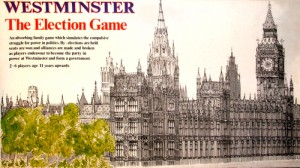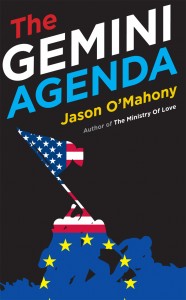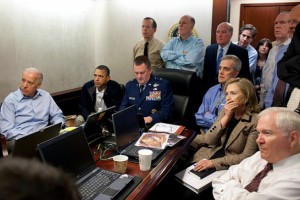
The Mother of All Strokes!
Sometime in the mid-1980s, this (then) teen-aged nerd stumbled across IT: the Holy Grail of political toys. In short, “Westminster: The Election Game”. I lost it in one of many house moves years later, and mourned it occasionally, until finding it on eBay some months ago and forking out. It has been the centrepiece for two evening gatherings of hardcore political anoraks since.
The game is essentially about winning a British general election, forming a government and getting bills through, whilst fighting by-elections and being ever aware that you could suddenly lose your majority and thus power.
Of course, as this was Irish pols playing, the normal Irish psyche kicked in. First of all, most of the rules were jettisoned because they didn’t allow enough shafting. Then, there was a fight over who would lead what party, with every player wanting to be the Lib Dems until yours truly pointed out that this was set in 1983 and they weren’t around. So they took the Liberal and SDP labels, grudgingly accepted Labour and the Tory banner was very much handed out under protest.
The general elections themselves, held under First Past the Post, again showed the Irish propensity for the stroke. With two fingers to ideology (“the mother had one of dem and the leg came off!”) the Tories and Labour divvied up the seats in a no-contest pact quicker than you could say “Gerrymander”, and fought and defeated a ramshackle Liberal-SDP Alliance that spent more time squabbling amongst itself (and occasionally running candidates against each other) than fighting the Red-Blue coalition. This was followed by a Labour-SDP government, an SDP landslide, and a return to the Red-Blues.
In true nerd fashion, one participant kept a laptop tally on the votes (alright, it was me) which were needed for the constituency results, and it clearly showed just how hilarious FPTP would be if the Irish were let at it, with the party with the smallest share of the vote winning the biggest share of seats.
The game ended with a resolution that more mischievous bills be permitted next time, including one allowing a player to introduce the pleasures of the Single Transferable Vote. Lovely!





